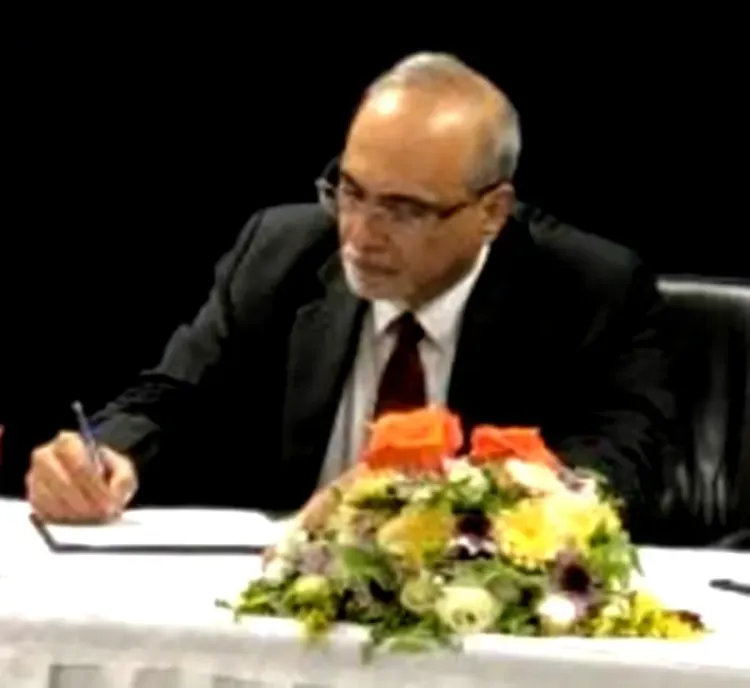Risks of Climate Change Affecting Financial Systems: RBI’s Rajeshwar Rao Calls for India-Focused Data

New Delhi, Dec 28 (NationPress) The risks posed by climate change have begun to affect the financial system significantly. It is crucial to develop capabilities for the accurate evaluation of these risks and to implement effective adaptation and mitigation strategies, stated Deputy Governor M. Rajeshwar Rao of the Reserve Bank of India (RBI). He highlighted the urgent need for India-specific data that is informed by a globally accepted range of scenarios.
At present, the primary challenge for emerging markets like India and developing economies lies in the insufficient funding required for the growth of sustainable technologies and the essential infrastructure necessary to combat and adjust to climate change, thereby fostering a resilient sustainable financial system.
“India is particularly susceptible to the effects of climate change due to its geographic positioning. Projections suggest that by 2100, climate change could result in an annual GDP reduction of between 3 percent and 10 percent,” Rao pointed out in an RBI report titled ‘Mitigating Climate Change Risks and Fostering a Robust Ecosystem for Sustainable Finance’.
Although there is ongoing discussion regarding whether climate change should fall under a Central Bank’s mandate, the influence it has on price stability and overall financial stability indicates a need for regulatory measures addressing the risks associated with climate change, he asserted.
The Central Bank has actively taken initiatives to evaluate and mitigate the potential impacts of climate change risks on the financial system.
“In recent years, we have implemented several incremental strategies to address this issue. This began with establishing a specialized group within the Bank tasked with evaluating climate change risks and promoting a robust ecosystem for sustainable finance,” Rao mentioned.
This initiative was later followed by a survey on climate risk and sustainable finance that included 34 scheduled commercial banks, a discussion paper on the subject, and the introduction of a framework for green deposits.
He noted that climate data suffers from issues such as a lack of standardized methodologies, fragmented access, inconsistent data publication practices, and variations in metrics, units, and formats.
“There is a deficiency of historical loan loss data concerning climate risks, hazard data that includes both historical and future predictions of climate events, and sector-specific benchmarks for transitioning to net zero. Currently, financial institutions do not have a common practice for tagging loan assets that have defaulted due to any climate risk event,” Rao emphasized.
This situation restricts the availability of realistic loan loss data necessary for incorporating climate-related risks into traditional risk management models aimed at estimating default probabilities. It also hampers financial institutions from conducting various simulations and scenario analyses to achieve realistic future loss predictions.
“Nonetheless, the scenarios provided by the Network for Greening the Financial System (NGFS) and the Intergovernmental Panel for Climate Change (IPCC) serve as valuable starting points for deriving India-specific outcomes,” Rao stated.
The government has also been proactive in promoting sustainable and climate finance initiatives, including the Green Hydrogen Mission, National Solar Mission, PM-KUSUM, PM-Suryaghar Yojana, Sovereign Green Bonds, and the Long-Term Low Emission Development Strategy (LT-LEDS).
“It is essential to enhance these efforts by developing public-private partnerships and exploring blended finance options, including the involvement of Development Financial Institutions (DFIs). There is a pressing need to address the commercial viability of projects and associated market failures, along with ensuring transparency, integrity, and adequate disclosures,” Rao concluded.










